Early in my chicken-keeping adventures, I learned the hard way that there is a big difference between chicken wire and hardware cloth. I now understand that chicken wire is intended to keep chickens confined to an area, not to prevent predators from reaching chickens. My failure to appreciate the differences prior to constructing our first run was costly and my hope is that others can learn from my mistake.
I was no more than 5 weeks into chicken-keeping when I saw the hawk pictured above, peering in at my new pets. Feeling confident that my flock was locked safely in their run, I dashed to grab my camera to snap this shot. What I did not know at that time was that he had already reached through the chicken wire with his razor-sharp talons, taking the life of one of my 5 week old Silkies. We immediately reinforced the run with hardware cloth and no predator has breached our coops’ security since then.
When considering fencing options for the coop and run, as a general rule, the smaller the openings and the lower gauge the metal, the better security it will provide. This hawk was able to reach in through the large holes of the chicken wire to grasp the chick, a feat he would not have succeeded in had there been hardware cloth in place. Hardware cloth is more expensive than chicken wire, but the initial investment is priceless given the heartache and financial losses it can ultimately prevent.
CHICKEN WIRE
Chicken wire, also known as hex netting, is a twisted steel wire mesh with hexagonal openings that can be galvanized or PVC coated.1 A hungry and determined predator, including but not limited to raccoons and some dogs, can tear through chicken wire with relative ease. It is not recommended as security fencing for chicken coops and runs.
Chicken wire is very flexible and good for making temporary structures designed to keep chickens confined, but it will not stop predators from gaining access to chickens.
HARDWARE CLOTH
Hardware cloth is wire mesh that consists of either woven or welded wires in a square or rectangular grid that is available in galvanized, stainless steel and bare steel.2 It is manufactured from a stronger gauge metal than chicken wire, (the smaller the gauge, the stronger the mesh) making it a much better choice for flock protection. 1/2″ to 1/4″ galvanized hardware cloth is typically recommended for coops and chicken runs.
HARDWARE CLOTH INSTALLATION BEST PRACTICES
1. Bury hardware cloth to deter diggers. To protect chickens from predators such as raccoons and dogs, hardware cloth should be buried at least 12 inches into the ground around the perimeter of the coop and run OR buried underneath the floor of the coop and run.
2. Cover all windows with hardware cloth.
3. Secure hardware cloth with screws and washers. Staples are easily defeated by pushing or pulling.
4. Seal all openings larger than one inch with hardware cloth. Minks and weasels can squeeze through very small openings and kill many chickens in a very short period of time.
Sources:
1 Direct Metals
2 Direct Metals
Both illustrations of chicken wire and hardware cloth are from meshdirect.co.uk
Kathy Shea Mormino
Affectionately known internationally as The Chicken Chick®, Kathy Shea Mormino shares a fun-loving, informative style to raising backyard chickens. …Read on


shop my SPONSORS
Early in my chicken-keeping adventures, I learned the hard way that there is a big difference between chicken wire and hardware cloth. I now understand that chicken wire is intended to keep chickens confined to an area, not to prevent predators from reaching chickens. My failure to appreciate the differences prior to constructing our first run was costly and my hope is that others can learn from my mistake.
I was no more than 5 weeks into chicken-keeping when I saw the hawk pictured above, peering in at my new pets. Feeling confident that my flock was locked safely in their run, I dashed to grab my camera to snap this shot. What I did not know at that time was that he had already reached through the chicken wire with his razor-sharp talons, taking the life of one of my 5 week old Silkies. We immediately reinforced the run with hardware cloth and no predator has breached our coops’ security since then.
When considering fencing options for the coop and run, as a general rule, the smaller the openings and the lower gauge the metal, the better security it will provide. This hawk was able to reach in through the large holes of the chicken wire to grasp the chick, a feat he would not have succeeded in had there been hardware cloth in place. Hardware cloth is more expensive than chicken wire, but the initial investment is priceless given the heartache and financial losses it can ultimately prevent.
CHICKEN WIRE
Chicken wire, also known as hex netting, is a twisted steel wire mesh with hexagonal openings that can be galvanized or PVC coated.1 A hungry and determined predator, including but not limited to raccoons and some dogs, can tear through chicken wire with relative ease. It is not recommended as security fencing for chicken coops and runs.
Chicken wire is very flexible and good for making temporary structures designed to keep chickens confined, but it will not stop predators from gaining access to chickens.
HARDWARE CLOTH
Hardware cloth is wire mesh that consists of either woven or welded wires in a square or rectangular grid that is available in galvanized, stainless steel and bare steel.2 It is manufactured from a stronger gauge metal than chicken wire, (the smaller the gauge, the stronger the mesh) making it a much better choice for flock protection. 1/2″ to 1/4″ galvanized hardware cloth is typically recommended for coops and chicken runs.
HARDWARE CLOTH INSTALLATION BEST PRACTICES
1. Bury hardware cloth to deter diggers. To protect chickens from predators such as raccoons and dogs, hardware cloth should be buried at least 12 inches into the ground around the perimeter of the coop and run OR buried underneath the floor of the coop and run.
2. Cover all windows with hardware cloth.
3. Secure hardware cloth with screws and washers. Staples are easily defeated by pushing or pulling.
4. Seal all openings larger than one inch with hardware cloth. Minks and weasels can squeeze through very small openings and kill many chickens in a very short period of time.
Sources:
1 Direct Metals
2 Direct Metals
Both illustrations of chicken wire and hardware cloth are from meshdirect.co.uk




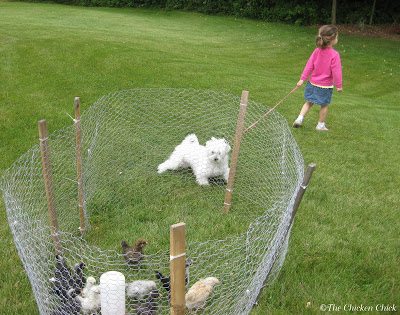
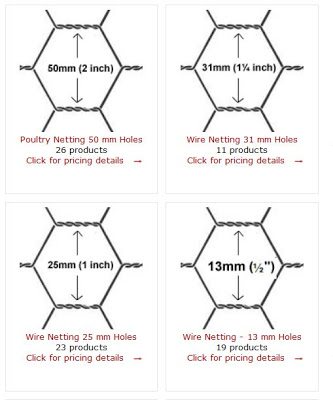
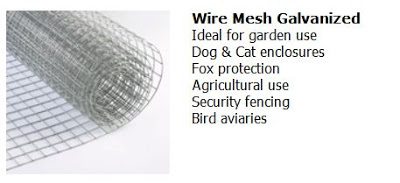

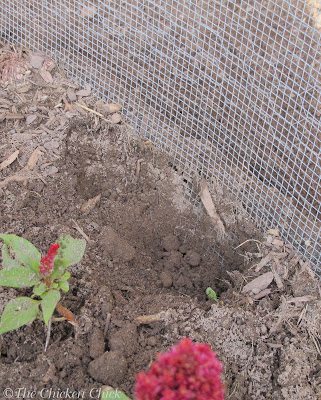
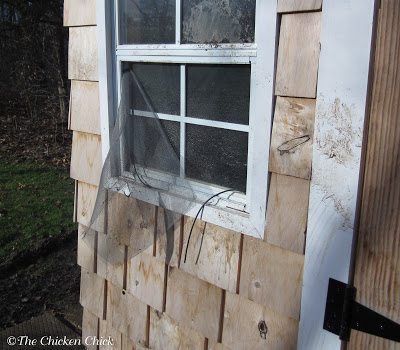
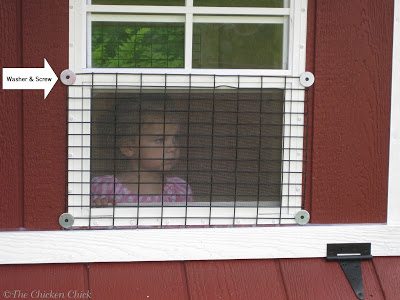
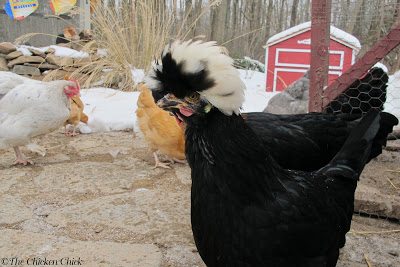















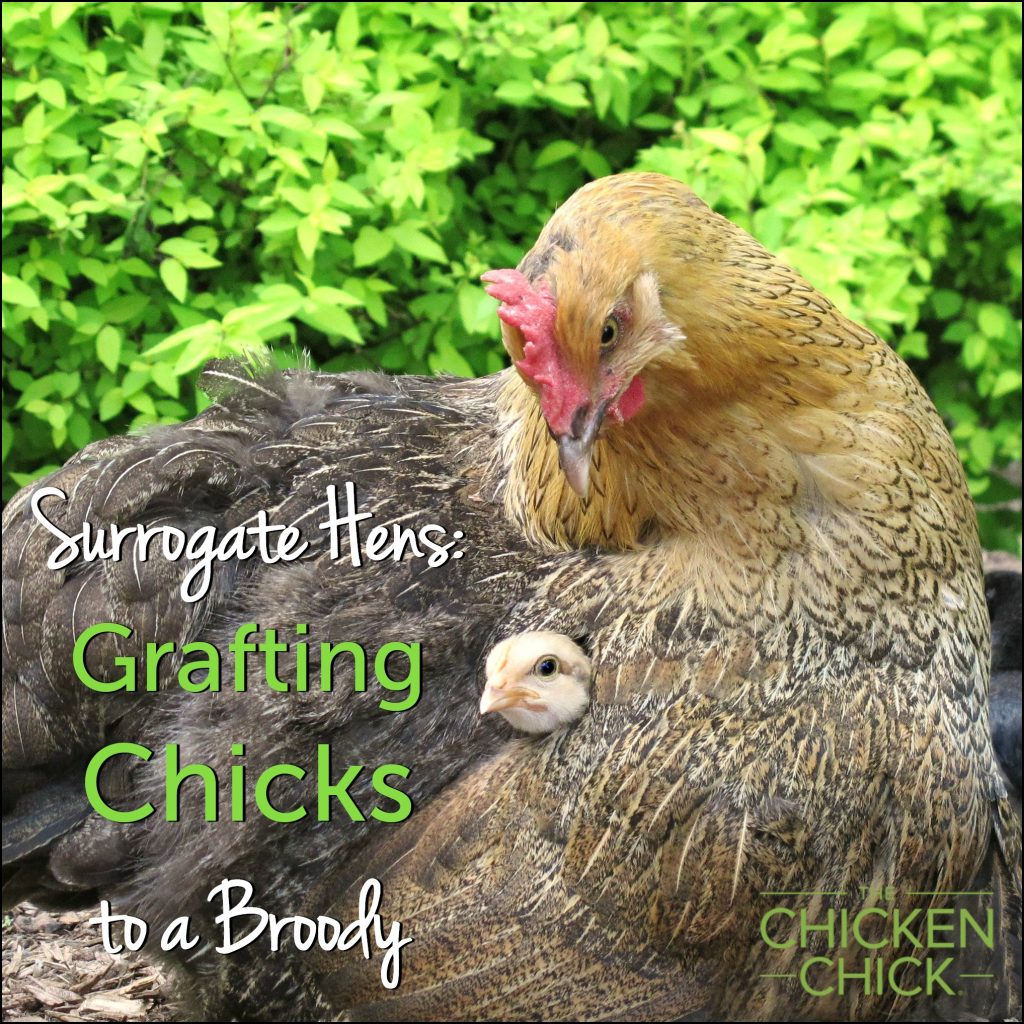
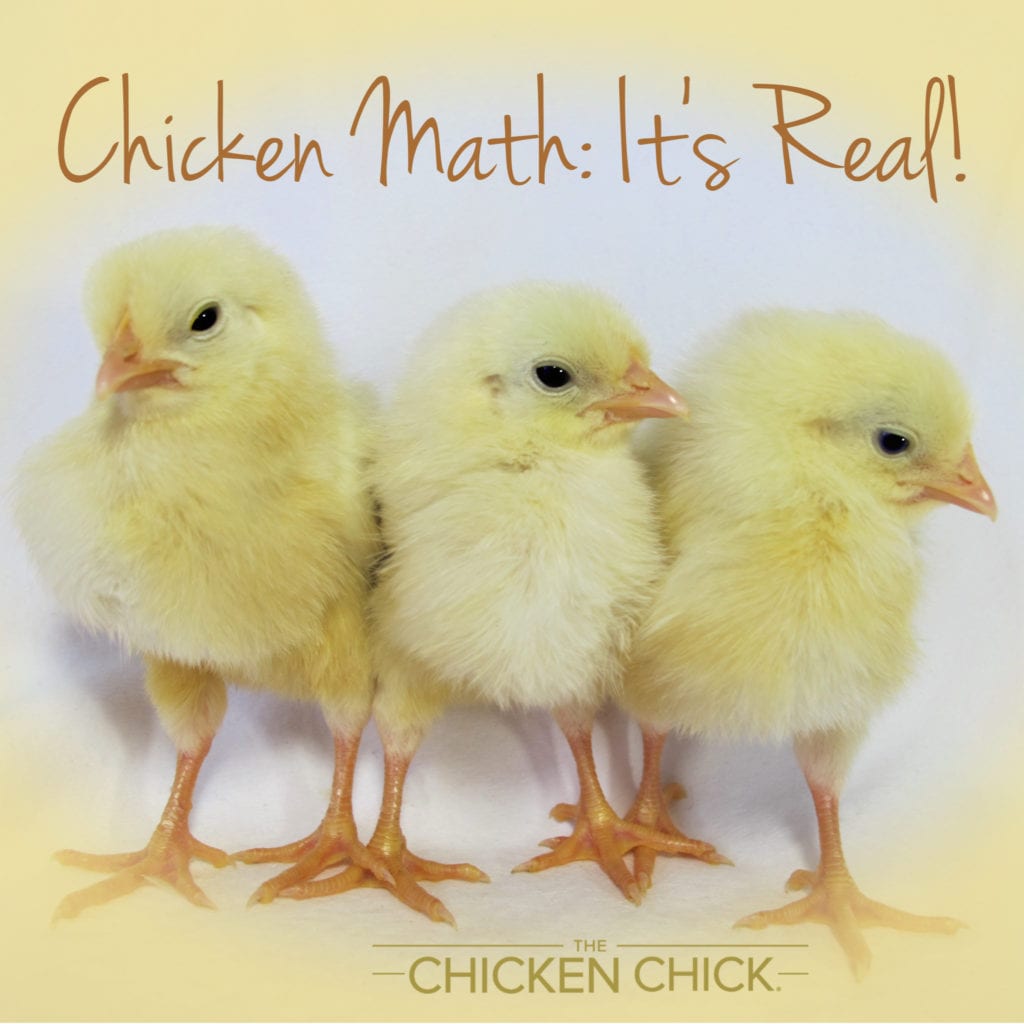









I recently installed some chicken wire fencing in Calgary. It's easy to do, but is sturdy enough to last.
Where you put hardware cloth will depend on how secure you want your coop and run. Raccoons can rip through chicken wire and aviary netting.
We have just built our hen house…. you can walk inside down a corridor and have 2 pens for our guineas and chickens (assorted bantams and larger chickens). I'm new to this…. the pens inside our coop are of just chicken wire, but the windows and doors have hardware cloth. Do I need to reinforce the inside chicken wire with additional hardware cloth? ALSO….. we are now constructing our outside pens, and will dig down and place the hardware cloth about a foot down. Should we curve it an additional few inches as a poster mentioned below? BUT, my biggest… Read more »
I have heard that if you use electric fence wire (without the electric to it) and string it across the area your chickens forage in, it deters hawks because they can see the it and can't swoop to procure the chicken
I love this post, We used chicken wire all over with hardware cloth around the sides at bottom and into the ground, learned from our mistake with just chicken wire at first:( I have heard that if you use wire as a bottom to the pen even with a few inches of dirt over it, when the chickens scratch they can cut feet, our new pen will just have wire down 12 inches and bent out 6 more inch..Love your blogs, learn so much!